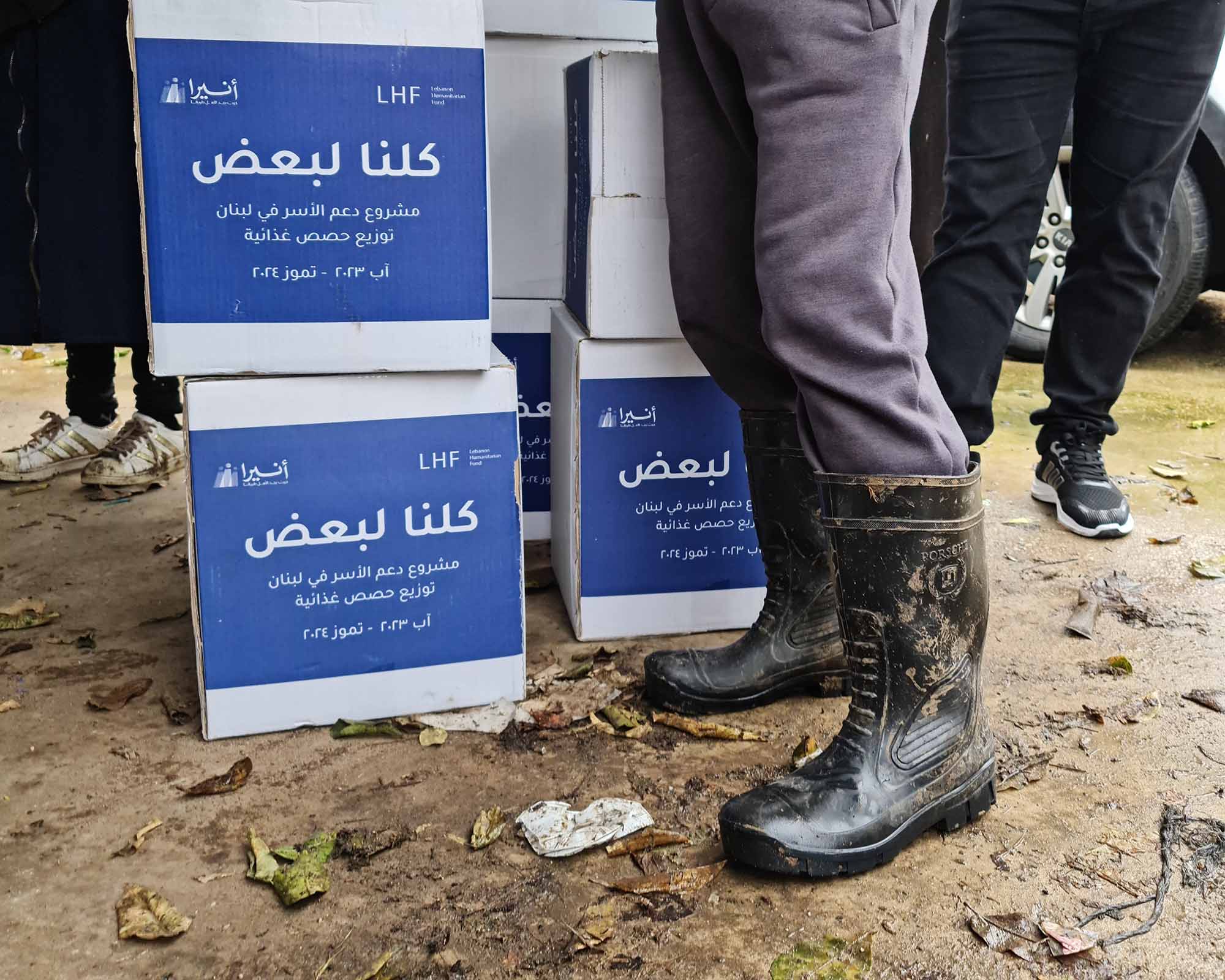Jan, 2024
Anera's Timely Aid in the Wake of Extreme Weather in Lebanon
In the early weeks of 2024, Lebanon faced many extreme weather conditions, including heavy rain, snow, and strong winds. These adverse weather events wreaked havoc on the nation's infrastructure, particularly affecting vulnerable regions such as the North and Akkar. The repercussions were severe, with flash floods, overflowing rivers all over Lebanon, and landslides that damaged homes, businesses, and agricultural lands.
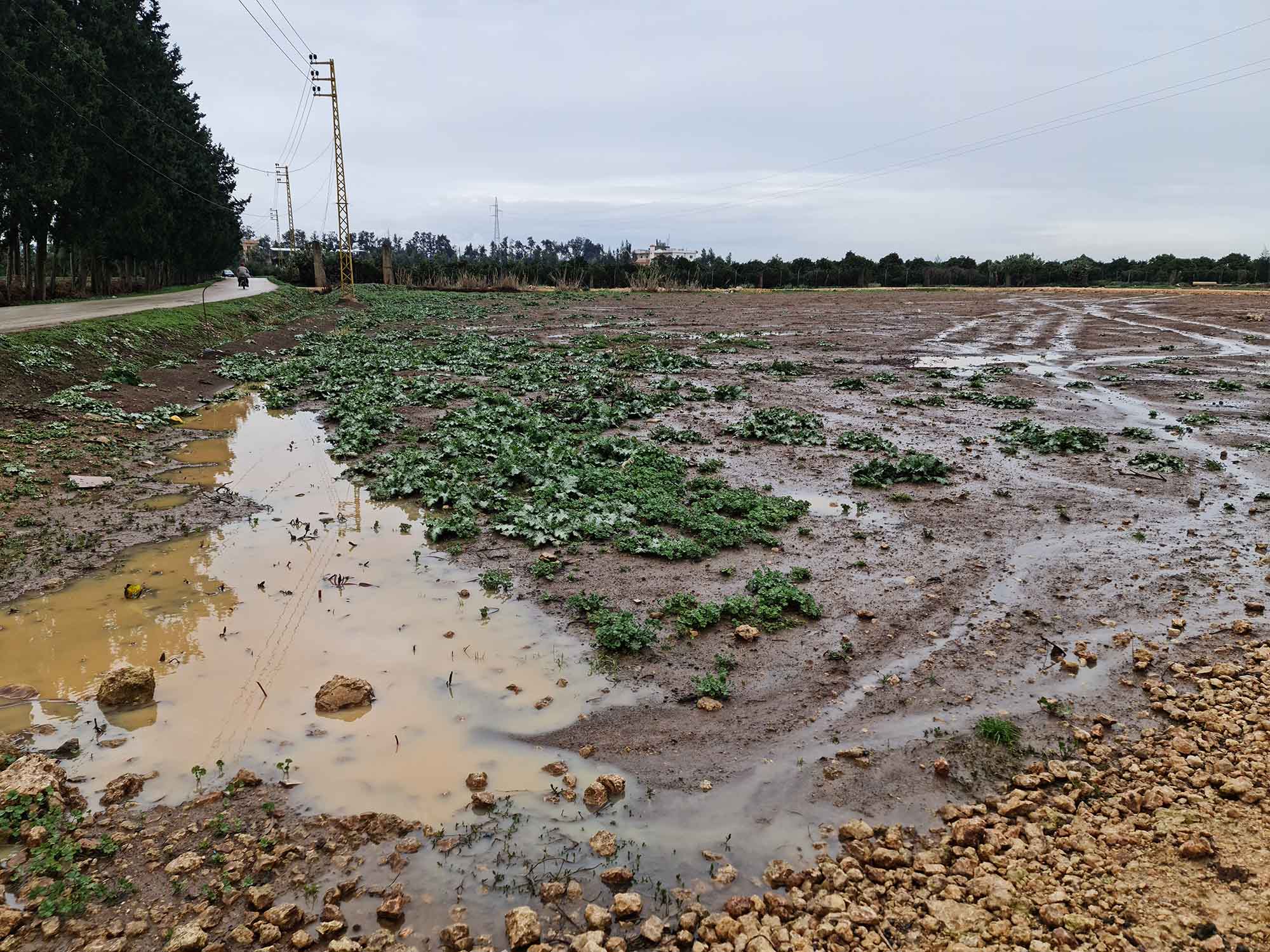

The Beirut-Damascus road, a critical link between the Bekaa Valley and Beirut, bore the brunt of soil erosion, leading to cracks and collapses. Widespread flooding and damage to shelters were reported, especially in informal settlements and vast agricultural areas, with casualties resulting from a tragic landslide.
Mohammed Kinj, head of the Surface Estimates Department at the Meteorological Service, emphasized the changing patterns of rainfall in an interview with Al-Ahd. He highlighted the emergence of climate extremism, where intense rainfall occurs in short intervals, leading to landslides and floods. Beirut Airport, for instance, recorded rainfall equivalent to 5% of an entire season's total within just 25 minutes.
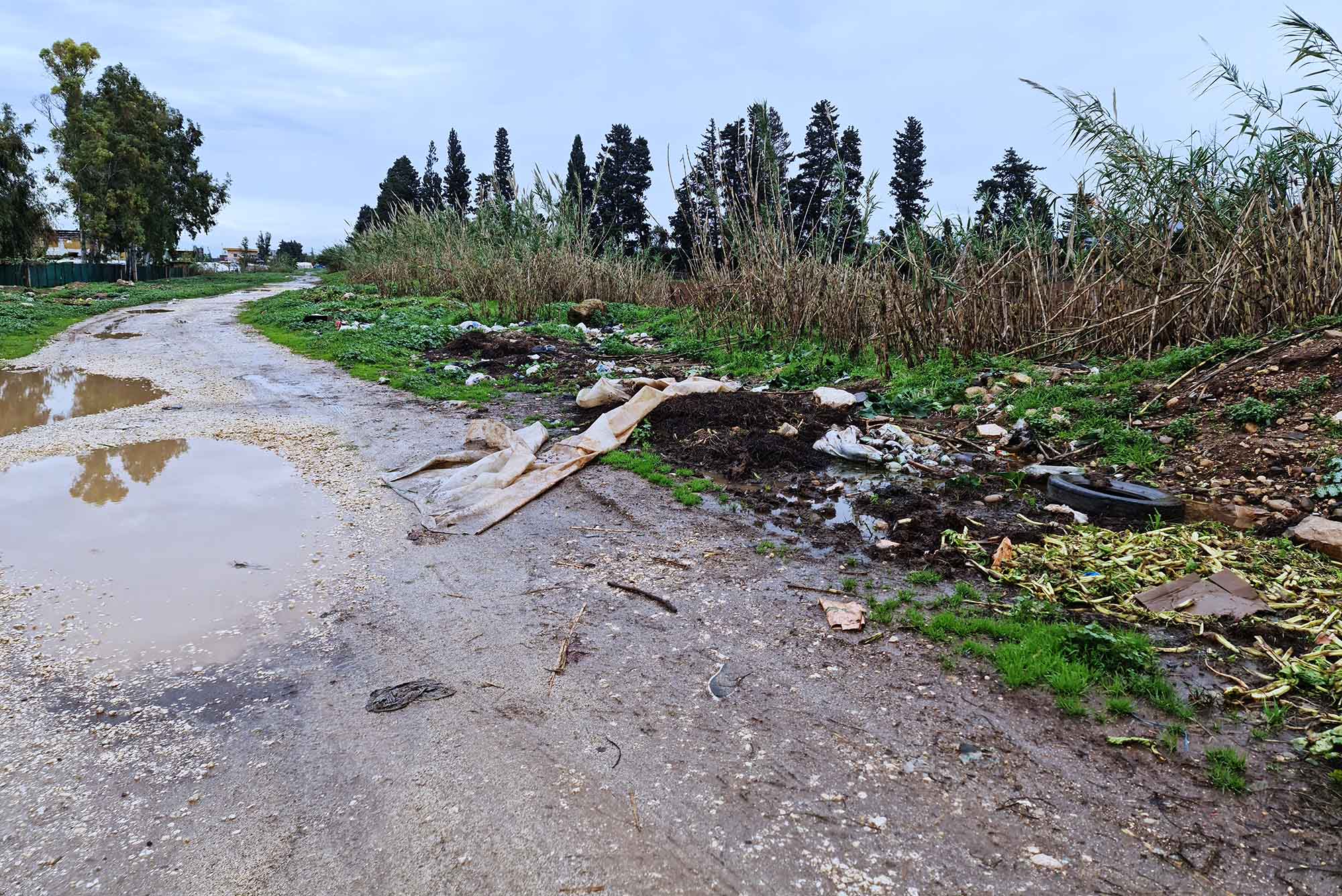

The storm on January 13, 2024 exacerbated the crisis, causing severe losses in northern Lebanon. The rising water levels inundated roads, homes, and businesses in areas like Al-Abdeh and Al-Kanisah in the Akkar Governorate. Syrian refugee camps on the Akkar plain faced substantial damage, with tents submerged in water, rendering them uninhabitable and ruining the few items refugee families have.
Many families have sought refuge with relatives, while others confronted the storm in an adjacent construction site devoid of windows or doors, enduring harsh conditions. In this makeshift refuge, they endured a challenging 48 hours without access to food, water, or heating.
Among those impacted was Souad, a Syrian refugee who shared her harrowing experience:
"At 7:00 in the morning, we awoke to a distressing sight—water had inundated our tents. Swiftly, we gathered ourselves and our children, abandoning everything we owned. Upon our return to the tents two days later, we discovered our mattresses, food, and the tent wood all irreparably damaged. We were left with nothing!"
Souad's story echoes the struggles faced by many families affected by the extreme weather.
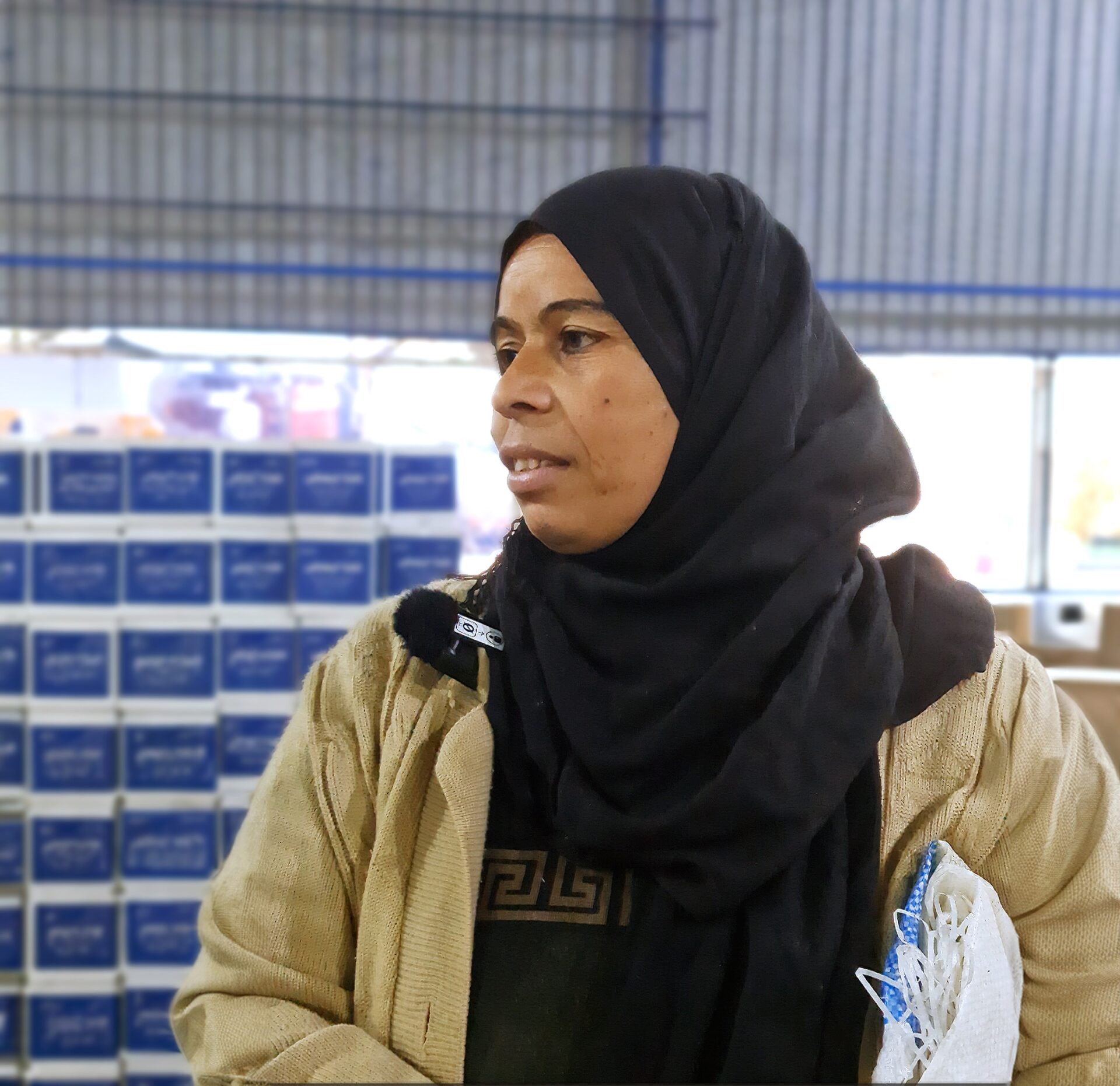

In response to this humanitarian crisis, Anera took swift action, in coordination with on-the-ground response organizations and support from the Lebanon Humanitarian Fund. Recognizing the urgent need, Anera's food security team initiated the distribution of food rations to families affected by the flooding of the River Al-Kabir in Akkar.
Anera's intervention addressed a critical gap in the response efforts. The team worked quickly to ensure an organized and respectful approach to aid distribution. The timely response from Anera and our partners provided much-needed support to those grappling with the aftermath of the extreme weather events.
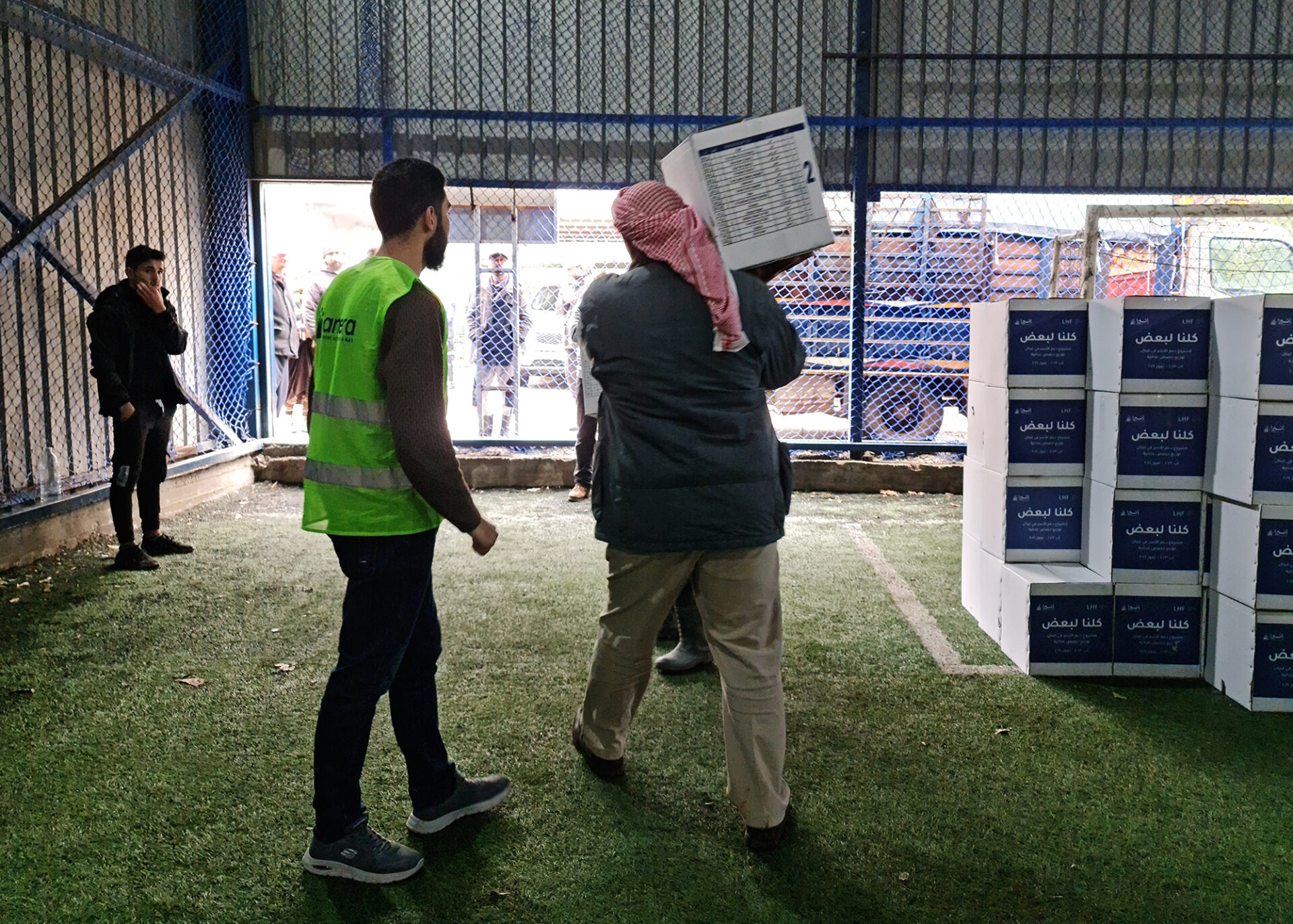

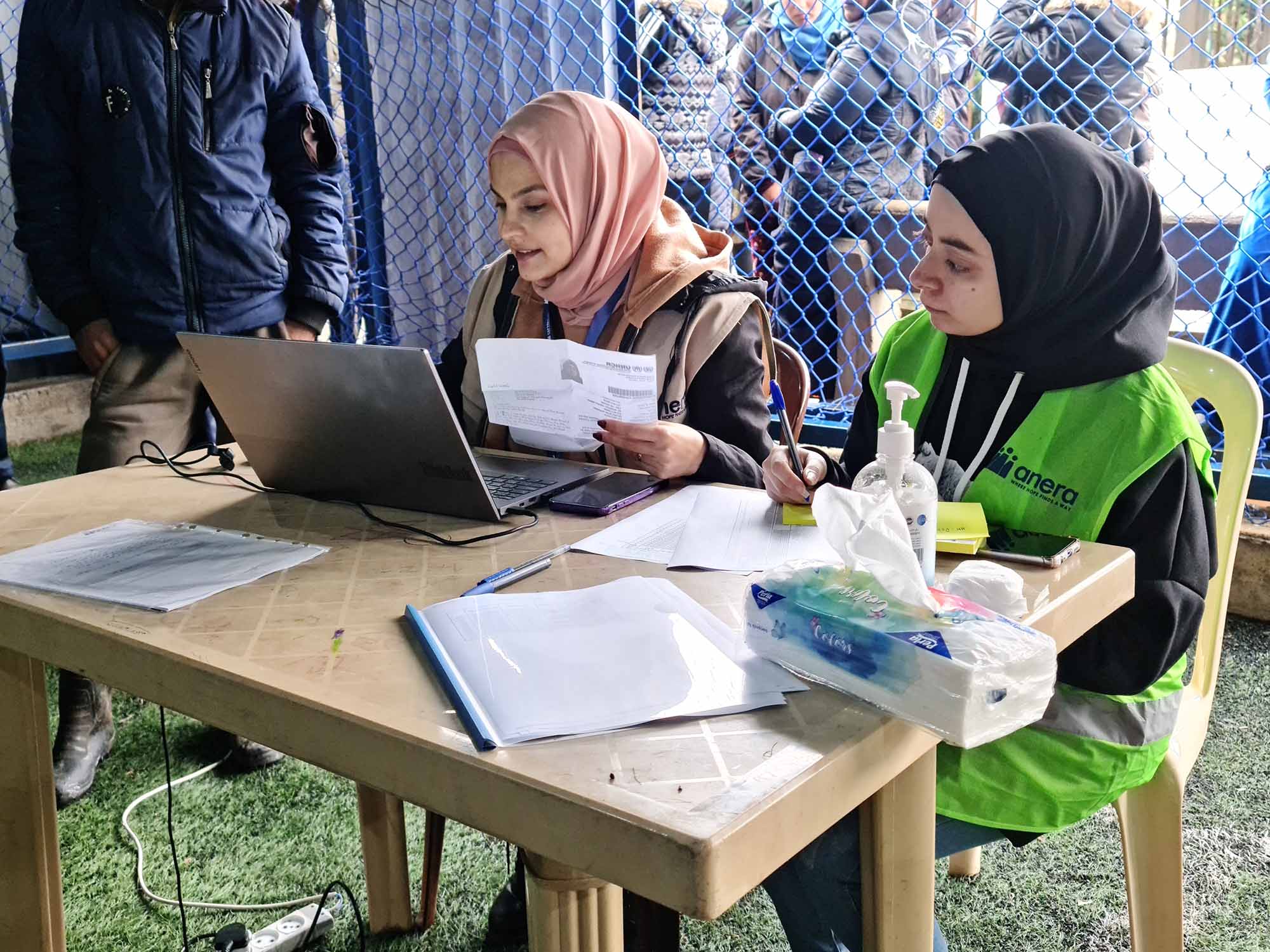

As Lebanon continues to navigate the challenges posed by climate extremism, the collaboration between organizations like Anera and local communities becomes increasingly vital. Together, we stand strong in the face of adversity, offering hope and assistance to those most affected by the unpredictable forces of nature.
